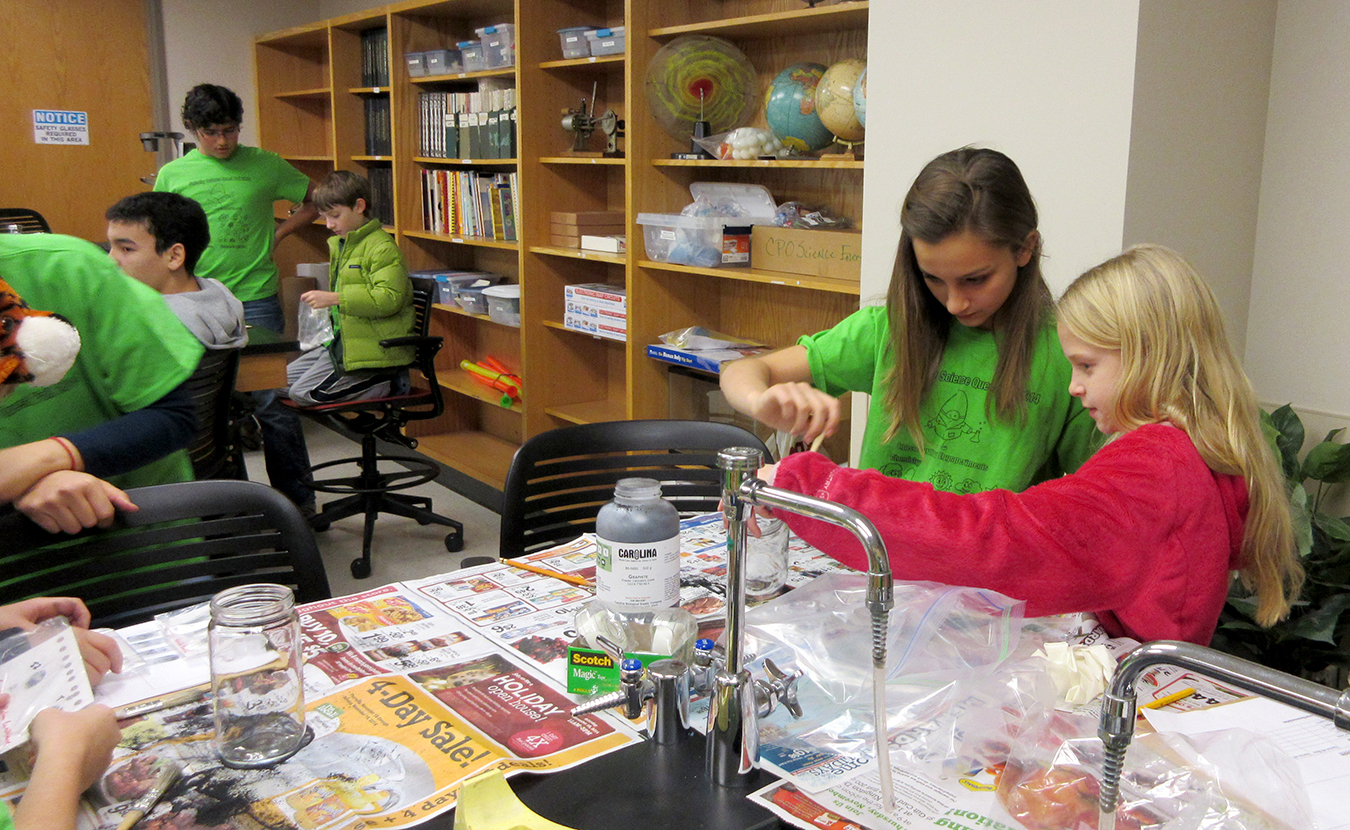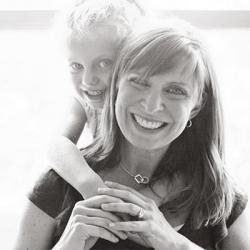Walk through the Indiana University School of Education on any given day, and the sights are what you’d expect to see — students studying at tables, meeting with professors, gathering in the foyer to chat. But for several Saturdays each fall and spring, the atmosphere is decidedly different. Excited voices and happy laughter fill the air as kids ranging in age from kindergarten to eighth grade take over college classrooms for Saturday Art School and Saturday Science Quest for Kids.
The Saturday programs, created to provide education majors an opportunity to get field experience with school-age children before working in a real-life setting, have served the Bloomington community for more than 50 years. Arts education master’s students and undergraduate majors teach Saturday Art School classes with supervision from doctoral students and department faculty. “It’s an easy step, a comfortable way to ease into being a teacher,” says Lara Lackey, associate professor of art education and director of Saturday Art School.
Depending on the semester, Saturday Science Quest teachers consist of undergraduate elementary education majors with a concentration in science or doctoral students (who select the topics and serve as mentors when the undergrads teach). Meredith Park Rogers, associate professor of science education and faculty coordinator of Saturday Science Quest, says the program helps provide the IU students with a sense of reality in managing a classroom. “They are planning the three-hour time frame — learning how to sequence activities across a morning and over five weeks.”

A young Saturday Science Quest student experiments with soil samples from Jordan River. | Courtesy photo
While the Saturday programs provide valuable opportunities for prospective teachers, they also give the young participants experiences they may not be getting in their own schools. The campus setting allows Saturday Science Quest students to get out of the classroom and explore Dunn’s Woods or visit the Jordan Hall Greenhouses. This fall, Park Rogers says, the youngest group of students (kindergarten to 2nd grade) visited Hilltop Garden & Nature Center and Jordan River while studying the components of soil. The younger students are very curious and have plenty of questions, making them the perfect audience for open investigations. Students in the group for 5th to 8th graders tend to focus more on designing and testing structures. “They really like anything that involves building and blowing things up,” Park Rogers notes.
Over the years, students in Saturday Art School have worked with traditional media and materials, while learning about drawing, printmaking, and sculpting with clay. “We try to have the teachers and children experience 2D and 3D materials because children work differently with them,” Lackey explains. Teachers ask the children to create something and then tell a story about their creation. “Especially with young children, the story is the most interesting part, and it can be difficult for an adult to decipher. The explanation can give you a window into what they’re thinking.” An exciting addition to the program is the recently opened Make Innovate Learn Lab, directed by Kylie Peppler, associate professor of learning sciences. The maker space is equipped with a variety of technology and tools, including a 3D printer and laser cutters — all of which are available to students working in Saturday Art School’s Saturday Studio class. “The kids explore creative technologies with an emphasis on design and design thinking,” says Lackey.
Both program directors regard the Saturday classes as valuable tools to reach children looking for particular experiences. “[Saturday Science Quest] is a great opportunity for girls who may not get the chance to do much science in school to come and challenge themselves,” Park Rogers says. Lackey highlights the importance of working with classic techniques in the digital age, saying, “There is more emphasis on technology [today], which is wonderful, but for children who don’t have access to it, you can do a lot with a pencil.”

Make Innovate Learn Lab gives students working in Saturday Art School’s Saturday Studio class access to a variety of technology and tools, including a 3D printer and laser cutters. | Photo courtesy of Indiana University Communications
Each program culminates with an opportunity for families to see what the children have done during the program. “The end project [allows students to] explain their thinking and what ideas they got from the class,” Park Rogers says. Last spring’s Saturday Science Quest finales included demonstrations of exploding volcanoes and dioramas depicting how animals adapt to their environments. Saturday Art School concludes each session with an exhibit of each class’s project displayed in the Matrix Gallery at the School of Education. Lackey says the art exhibit is a joy to be part of. “It’s important for the teachers to understand how important it is to the kids. The students become the teachers and show their parents what they’ve learned,” she explains. “When the teachers hear kids talk about what they did, it lets them know that they learned something.”
Many of the children find that one Saturday session just isn’t enough. “Quite a few students come back year after year,” Park Rogers says. And according to Lackey, some families take attendance even further: “We do have people who attended as children and are now bringing their own children.”
[Editor’s note: You can find more information on Saturday Art School and Saturday Science Quest for Kids here. The next session begins in February. Registration and scholarship information will be coming soon. Contact Sara Sturgeon at [email protected] or 812-856-8129 for further information about registration.]


